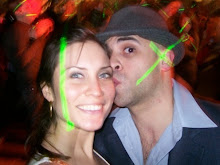Ross, Chareles L. The Electronic Text and the Death of the Critical Edition
http://sites.unc.edu/viscomi/841/Electronic%20Text%20and%20the%20Death%20of%20the%20Critical%20Edition%20Ross.pdf
In this article, Ross takes issue with the Bowersian (or Gregian, or Tansellian) model of critical edition, and ultimately questions the validity of the entire Anglo-American tradition of textual editing. He rejects the dominant M.O. in the field of textual scholarship--resulting in a codex-form eclectic text, based on editorial desumptions of "final intention", with its accompanying textual apparatus, for, in his view, this is a surpassed approach which "has not kept pace with either literary theory or the needs of readers" (225). Ross advocates an edition that is in tune with the "poststructuralist age" we inhabit, where the reader effectively has the opportunity "to rewrite a whole text or version", and is no longer subjected to the intrinsically teleological critical edition with its "myth" of final intention--no longer a passive consumer. (226) Needless to say, he sees the digital medium as opening the door to this possibility, for even a printed sinoptic edition, like Gabler's Ulysses, is ultimately limited by its material form.
Ross' position, clearly indebted to Barthesian theories of myth, and heavily laden with post-structuralist and deconstruction(ist?) terminology, echoes many of the articles we've read to this point, and seems exactly the kind of talk that would enrage elitist hi-tech skeptics like Cooper&Simpson or Birkerts, with its ambition to transform the reader into editor seemingly threatening the supreme authority of the scholar-"high priest" . While much of Ross' argument is nothing too new to us, he does attempt to contribute constructively to the discussion when he proposes the incorporation of actual do-it-yourself editing tools in online archives and resources, through which the reader could be able to mark and construct the text according to his needs/interests. However, as he too does not appear to be very familiar with the behind-the scene issues (the practical difficulties and limits of computer-programming), he remains vague and gives no concrete example as to what these tools should look like or how they would be implemented. My question is: do any of the major online resources we are looking at offer anything of this sort? And if not, have the Blake Archive or any of its "cousins" ever dabbled in these ideas?
Subscribe to:
Post Comments (Atom)

No comments:
Post a Comment